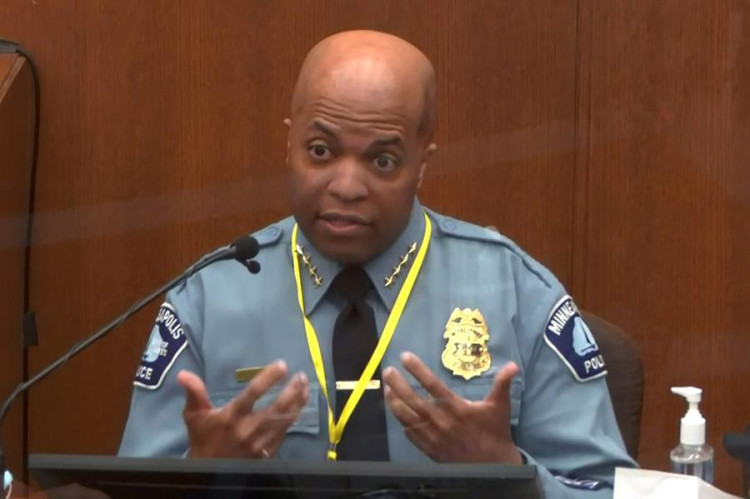Minneapolis Police Chief Medaria Arradondo told a court Monday the former Minneapolis police officer who pinned his knee on George Floyd's neck before he died, violated an excessive force policy, The Washington Post and Associated Press reported Tuesday.
Arradondo terminated Derek Chauvin from the force and three other officers the day after Floyd's May 25 killing. In June, he called Floyd's death "murder" in response to an investigation from the Star Tribune.
Prosecutors have argued that Chauvin's use of unnecessary force was not in compliance with what officers are trained.
"I don't know what kind of improvised position that is ... that's not what we train," The Post quoted Inspector Katie Blackwell, who previously led the training program for the Minneapolis Police Department, as saying.
Neck restraints are prohibited at many law enforcement departments, and such form of restraints are banned in Minnesota. But the Minneapolis Police Department did authorize them at the time of Floyd's death.
The physician who provided emergency care to Floyd testified that at the time of the incident, he believed Floyd, who was handcuffed with his face flat on the ground, died from a lack of oxygen, rather than a heart attack or drug overdose based on the information he obtained.
Dr. Bradford Langenfeld, who was a senior resident on duty that night at Hennepin County Medical Center, said Floyd's heart was no longer beating by the time he arrived at the hospital.
The testimony of Arradondo, the city's first Black police chief, was one of the most anticipated moments in the trial, in part because this kind of appearance on the witness stand is very unusual. According to experts, it is rare for a police chief to testify against one of their officers.
"The officers knew what was happening - one intentionally caused it and the others failed to prevent it. This was murder, it wasn't a lack of training," Arradondo said.
Chauvin, 45, is charged with second and third-degree murder and second-degree manslaughter. He has pleaded not guilty. If convicted of the most serious charge in the ongoing trial, he faces up to 40 years in prison.






